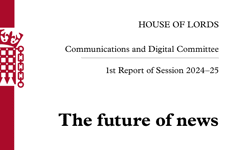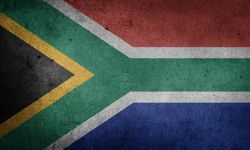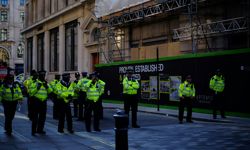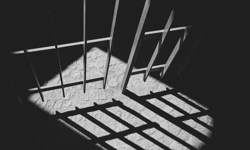
It’s a statement as obvious as it is powerful. But last week, four of the biggest newspapers in the United States were compelled to lead with these words in a joint editorial, calling for the release of Wall Street Journal journalist, Evan Gershkovich.
Arrested in Russia last month on the baseless charge of spying, Gershkovich’s internment is a reminder to us all that there is no greater symbol of a free democracy than a free press. I echo the calls from the Prime Minister for his immediate release.
The UK has always been proud to have a press that is not only entitled but empowered to hold to account those in positions of power and influence. From as far back as the 17th century, our journalists have asked the hard questions and refused to be deterred even when someone powerful claims that there's “nothing to see here.”
The Government believes in protecting the rights of journalists to uncover the truth. Because through this we maintain higher standards in public life.
The UK is among the best places in the world to be a journalist. But we want to go further.
So through legislation, including the draft Media Bill which we have recently published, we plan to enhance their rights. This includes the repeal of Section 40 of the Crime and Courts Act 2013, which was a law that could force publishers to pay the costs of the people who sue them, even if they won. If enforced, this law could have a chilling effect by discouraging newspapers from conducting the most difficult investigations.
Meanwhile, the Online Safety Bill, which is making its way through the Parliament, includes safeguards to protect press and media freedom, and robust provisions to ensure people can continue to access diverse news sources online.
Importantly, news publishers’ content is not in scope – whether it’s on their own sites or when shared on other online services. Journalists will also benefit from increased protections when they post on social media. The biggest social media platforms will be required to offer news publishers a right of appeal before removing or moderating their content. This means their content will remain online while the appeal is considered, unless it is illegal.
And we are doing all we can to protect journalist safety, as well as their rights. We continue to campaign for the safety of journalists in the UK and overseas. In 2019 we established the global conference on media freedom and followed that up with the National Committee for the Safety of Journalists.
That Committee has achieved a great deal in its short life, including the National Action Plan for the Safety of Journalists which sets out in the clearest terms possible exactly how UK journalists will be protected from threats of violence or intimidation.
The UK has always been a bastion of press freedom. We have long championed values of tolerance and freedom of expression, for which previous generations have fought and died - and we will continue to champion them and their work.












